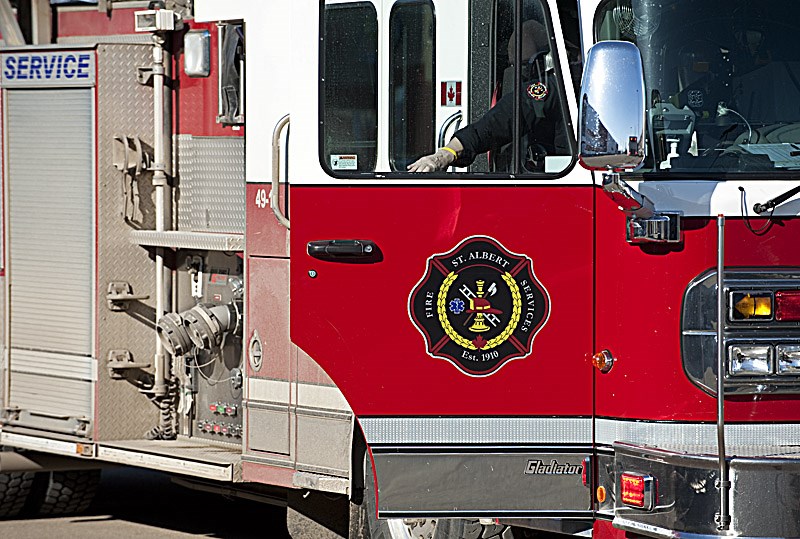A new Alberta-wide mental health resource for first responders is now accepting calls, and could offer additional support for those serving in rural communities.
On Sept. 25 a volunteer-run, all-hours peer support helpline called Boots on the Ground (BOTG) opened its lines for police, firefighters, corrections officers, paramedics, emergency dispatch operators, and nurses seeking confidential support.
Corrections officer, military reserve member, and BOTG in Alberta president Mo Shaukat said in the week the helpline has been open, it has received several calls.
“In fact, surprisingly for me, more than we expected," Shaukat said. "But I'm very glad that that's happening. I'm very glad that we're able to provide people that just some sort of relief, some sort of resource,” he said.
The Ontario branch of the new helpline opened in Ontario in 2018. Since then, the Ontario branch has received 2,400 calls, which included 40 active suicide calls that were directed to appropriate assistance, according to a press release.
Shaukat said first responders are "exposed to a lot more trauma than the average person and if they can’t open up about it, it can lead to post traumatic stress disorder (PTSD), marital issues, drug problems or worse."
According to a news release, a 2016 study by the Journal of Community Safety and Well-Being estimated 70,000 Canadian non-federal police, firefighters and EMS personnel have suffered from PTSD.
Shaukat said the service isn’t meant to replace a councillor, therapy, or other mental health services, but it’s another tool for support.
“What I found in my personal journey was that anywhere else you go to find therapy becomes a two- or three-fold process,” he said.
First, Shaukat would have to explain what he did for work, then explain if his distress was stemming from a specific incident, and then explain the incident.
“And almost help the other person get over the overwhelmingness of the incident, because some of the stuff that we witness is, like a normal mind can’t even — sometimes can't even comprehend that,” he said.
Paul McLauchlin, president of Rural Municipalities Alberta, said first responders in rural communities must deal with the same issues urban first responders deal with but with added complications.
“Oftentimes, first responders will actually respond to friends and relatives that have had literally the worst day of their life and, and that becomes very complex for many of our first responders,” he said.
Rural communities also have complexities around accessing mental health generally.
“One of the things we're seeing is that these mental health services are nonexistent in many communities. And at the same time, the access is complex and difficult. And we've seen that, compounding with the greater overarching mental health issues we've had in society, and specifically in rural municipalities, that folks just aren't getting the care and the help they need,” he said.
McLauchlin said there is a mental health crisis in society in general and a crisis of access which is compounding the issue.
“Then you get the folks that are extremely vulnerable to mental health issues, which are first responders under any designated role or responsibility," he said. "They are suffering too … they suffer in silence until things manifest themselves in multiple different ways, whether it's substance abuse, and the most horrific discussion would be around suicide or self-harm."
“This is something that really requires a tremendous amount of energy, and these good people are doing so much for us, we need to do something for them,” he said.
Shaukat said in a year’s time he hopes to see the entirely volunteer-run BOTG expand to providing in-person debriefings for the smaller departments that don’t have their own debriefing teams. This would require additional training for volunteers.
They are always looking for more first responder peer support volunteers, Shaukat added. He would also like to add therapy dogs to the program, something that has been successful in Ontario.
“We walk them into a fire station one day and everybody could just come spend some time with some dogs. Go into a police station after an incident and just have all of this,” he said.
McLauchlin thinks mental health issues have reached a crisis stage and they are not only going to require resources, but those resources are going to have to match the local need.
“I think that's the most important part, because in many cases, those services have been pulled into larger centres, and have never returned to the community that they used to provide services to before COVID-19."
“It's a pretty frightening situation for people that do amazing work for us on a day-to-day basis,” he said.
More information about BOTG can be found at BOTGalberta.com
The helpline number is 1-866-724-2684
The Canadian Mental Health Association also has a mental health hotline accessible in Alberta by dialing 211 or 1-877-303-2642




